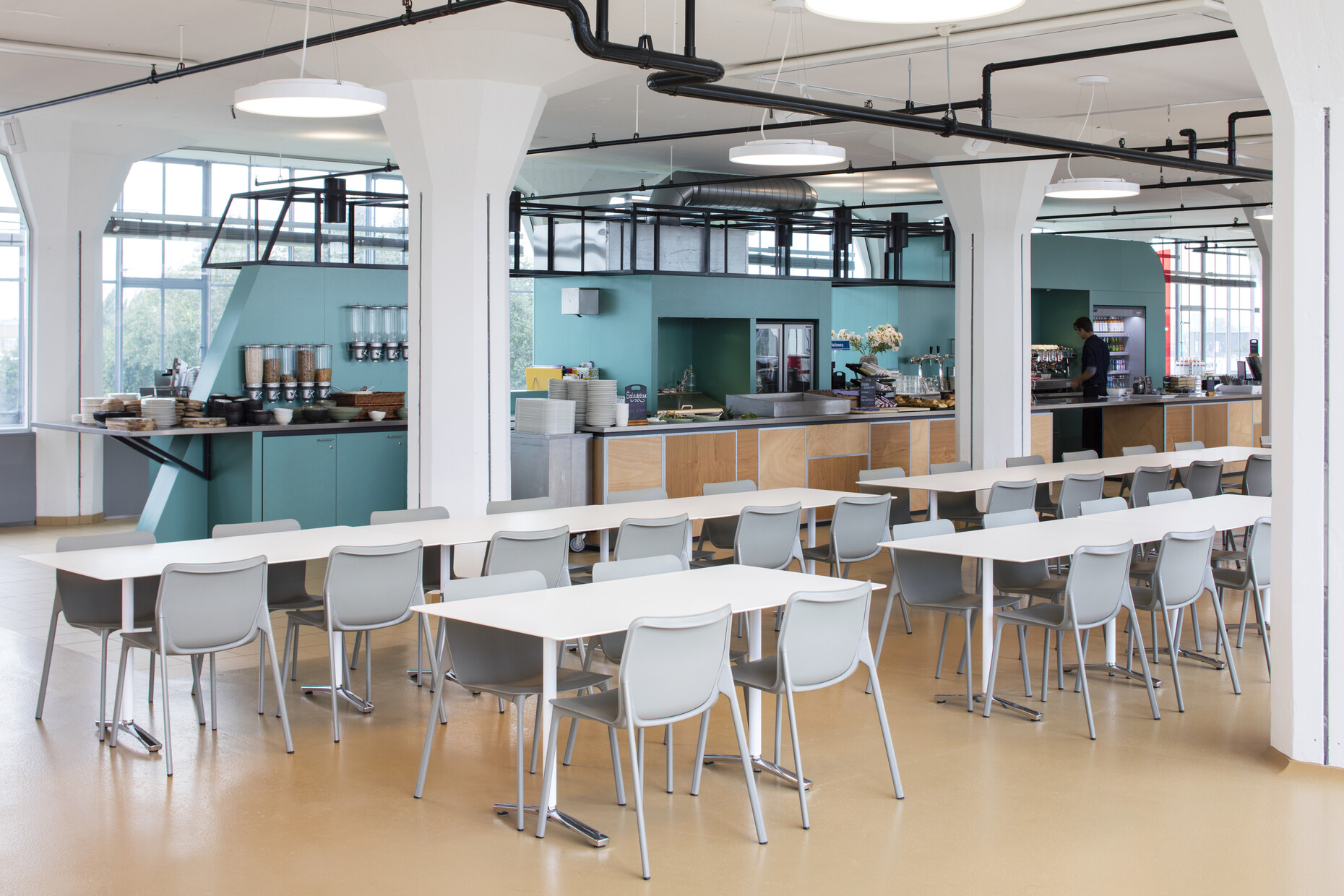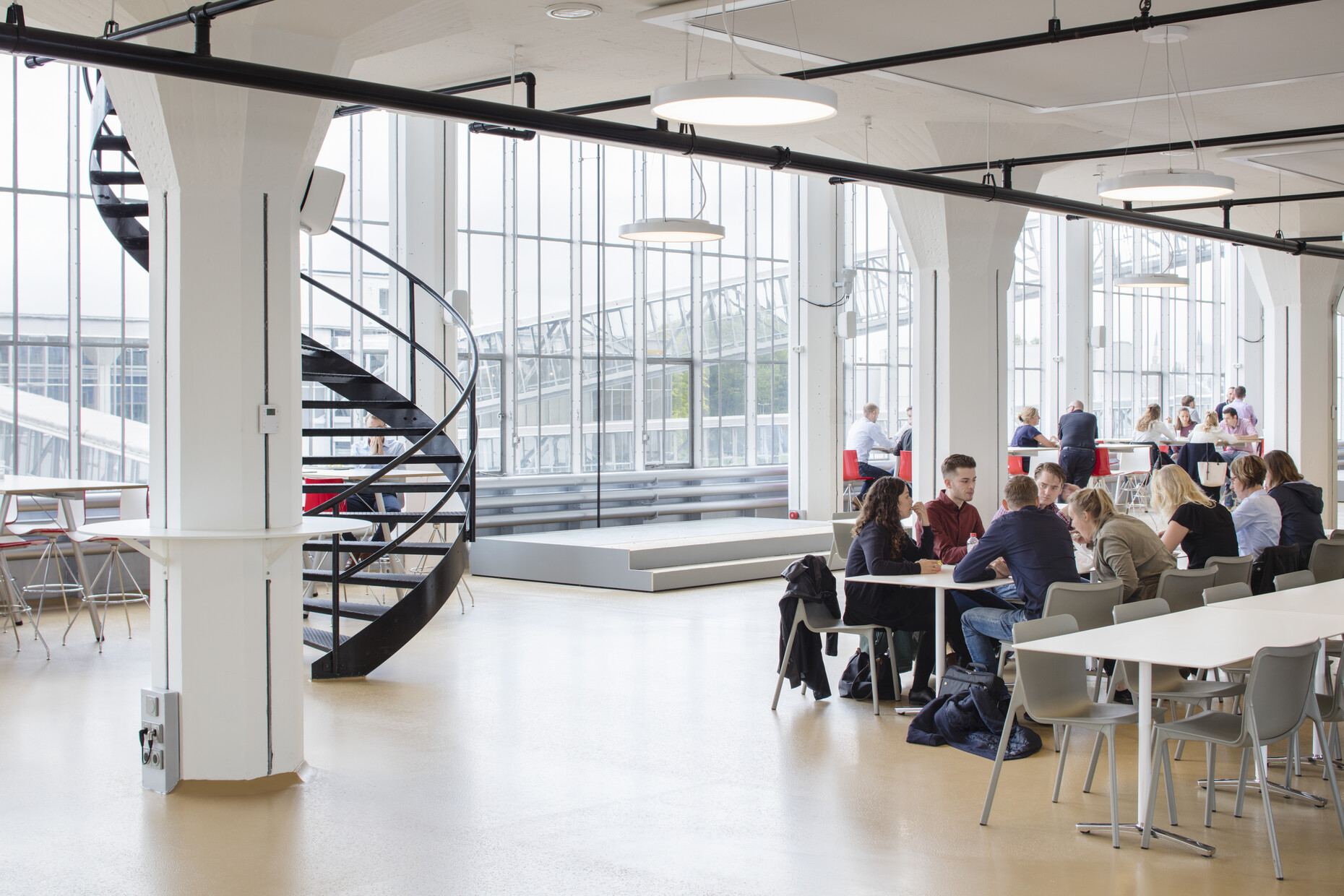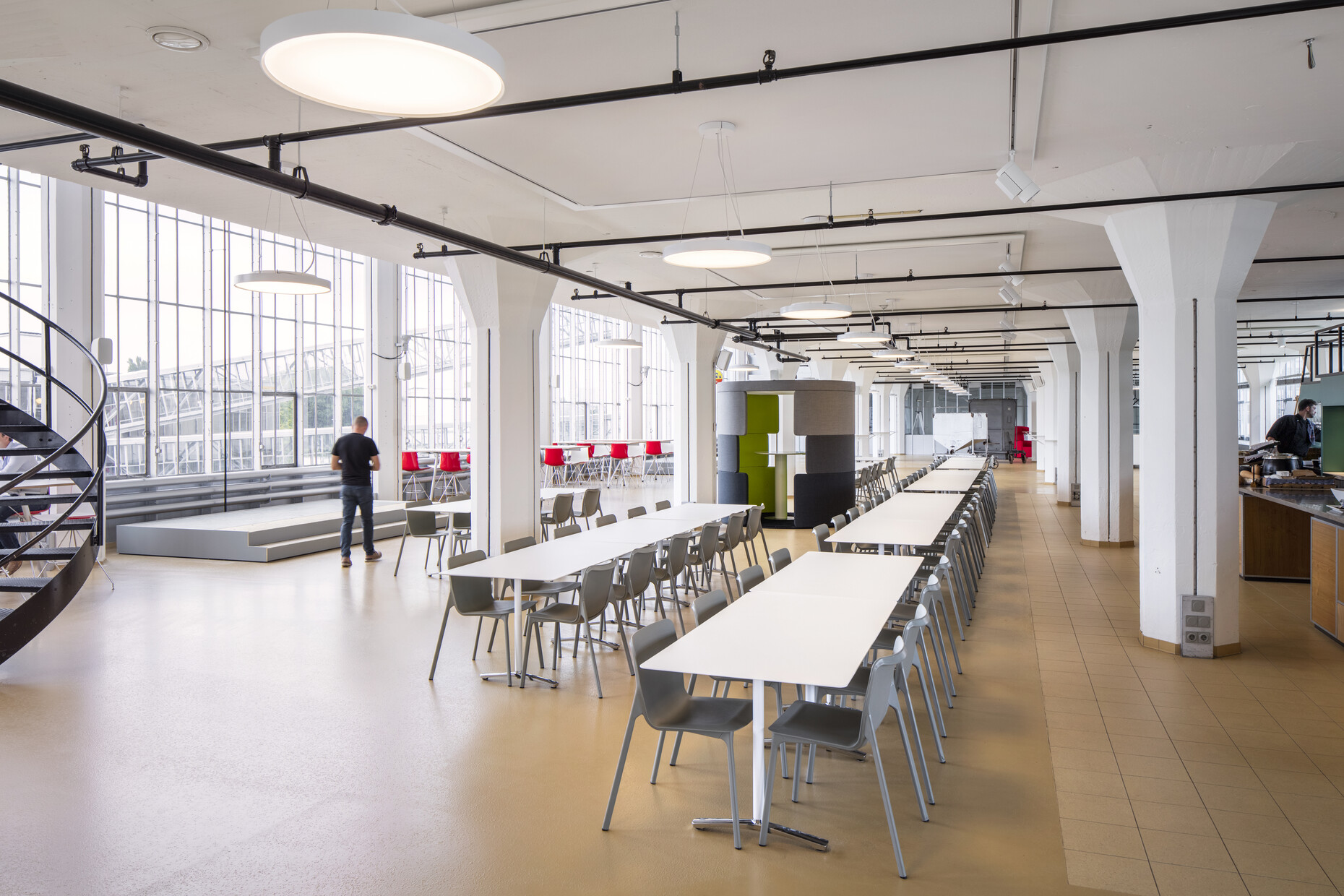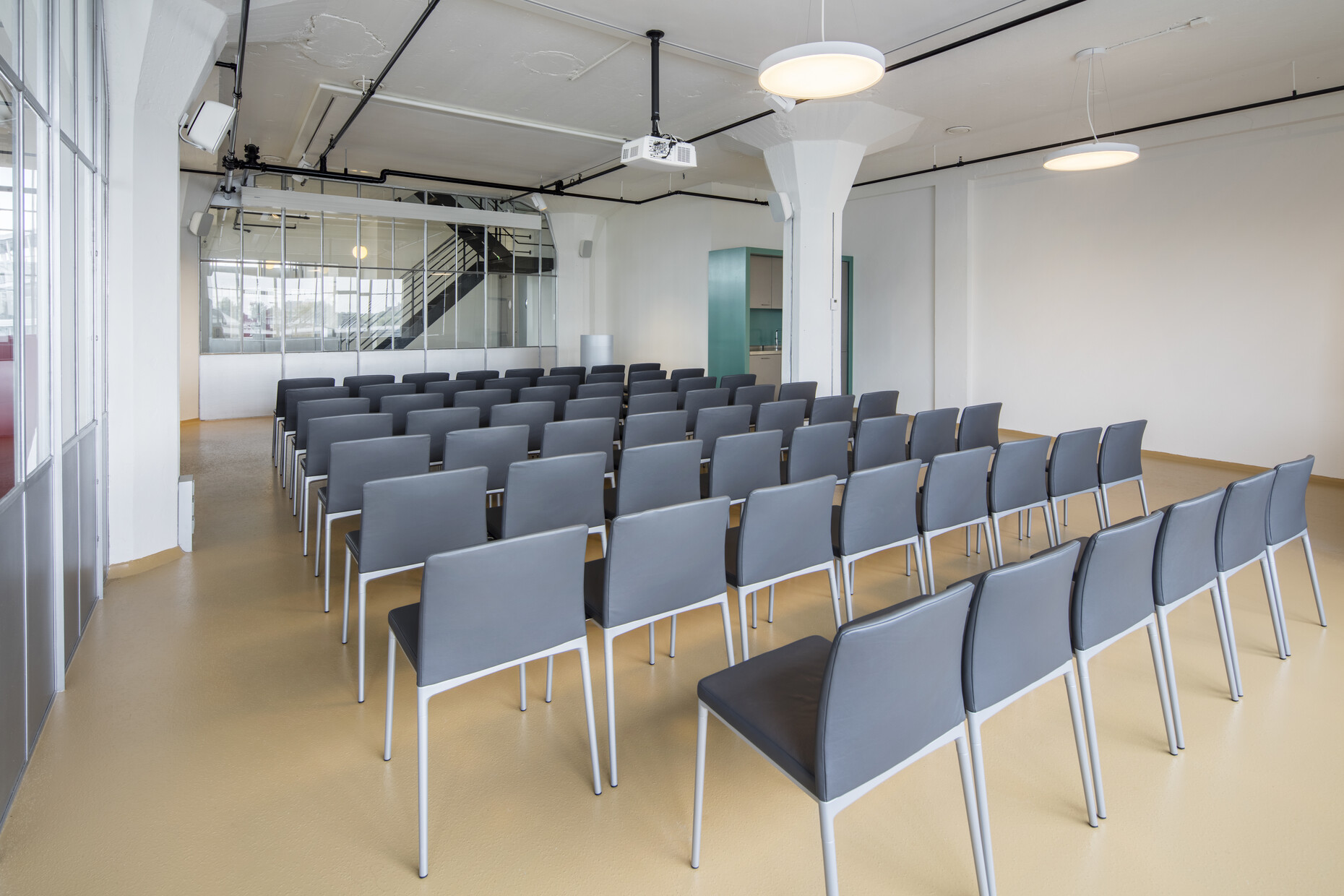A lunchbreak in World Cultural Heritage
At one time, tobacco, tea and coffee were produced here – today it is the workplace of creatives, designers and architects. In our 21st-century cities it is not unusual for old industrial buildings to be put to cultural use. However, the project by Wessel de Jonge is really something special: They modernized the legendary Van Nelle factory in Rotterdam. Following its closure in the 1990s, the architects transformed the building into a contemporary center for the creative industry, and Wilkhahn also established its Dutch subsidiary there. And in 2014, along with just a handful of other outstanding 20th-century projects, the building was added to the UNESCO World Cultural Heritage list. As this meant all redesigning work had to be done very carefully, Wessel de Jonge decided to establish a catalog of design rules for future fittings and alterations.
Jan Brinkman and Leen van der Vlugt designed the spacious factory premises with wide windows and striking columns in 1931, taking as their motto “light, air and space”. For this reason the immense building nowadays offers various sizes of rental space, not to mention lots of room for events. In the recently redesigned cafeteria the larger fittings were positioned in accordance with the former factory machinery, and the choice of color was likewise influenced by the building’s past: the metal surfaces in the service area were given a coat of petrol green, ocher was chosen for the floors, and white for the walls. Wessel de Jonge opted for contemporary furniture by Wilkhahn, which suits the building’s style. With its deep-drawn sheet-steel frame the Chassis chair by Stefan Dietz in gray cites an industrial context, a modern take on the Bauhaus design principles, and with its modern seats offers 21st-century comfort. Similarly, with tops just 12-mm thick and die-cast aluminum frames, the Aline tables by Andreas Störiko suit the industrial setting of the Van Nelle factory. For the separate lecture room, the architects chose the elegant, upholstered Ceno chairs by Wilkhahn. The result: rooms with a contemporary design perfectly in keeping with the building’s character rather than a slavish reproduction of the factory’s era.











